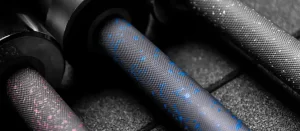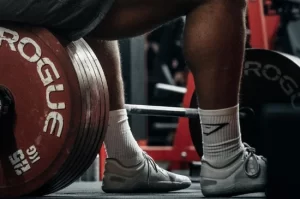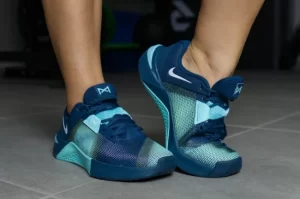SARMs
|

More and more positive SARMs in the world of CrossFitDespite this, there is still a great lack of knowledge about this type of substances, even among the users themselves, which is very worrying when considering the safety and health of the athlete.
In this article we are going to talk about the compounds on everyone's lips: SARMs.
NOTE: This article is not intended in any way to advocate the use of doping substances. The information presented here is not a medical recommendation. The use of substances can lead to serious health problems in addition to not complying with sport regulations.
Why were SARMs banned?
First of all, we need to understand why the use of certain substances is prohibited:
World Anti-Doping Agency (WADA) publishes annually a list of prohibited substances and methods for athletes, both in and out of competition.
It is crucial to note that in its anti-doping policyCrossFit is committed to strictly follow the WADA criteria and to impose 4-year sanctions on athletes in the event of a confirmed positive result after an appeal.
The list of substances is extensive and growing every year.. They include compounds of diverse nature ranging from testosterone or derivatives to tramadol. This was added to the list of doping substances in 2024 because it acts on the central nervous system, inhibiting the transmission of pain and consequently increasing tolerance to it and therefore performance.
WADA includes a substance on its list only if it meets at least two of the following criteria:
SARMs are included in this list of substances banned by WADA.
S1.2 OTHER ANABOLIC AGENTS
They include, but are not limited to:
Clenbuterol, selective androgen receptor modulators (SARMse.g. andarine, LGD4033(ligandrol), enobosarm (ostarine), RAD140, S-23 and YK-11), osilodrostat, ractopamine, zeranol and zilpaterol.
When were they banned?
In 2008, the World Anti-Doping Agency (WADA) included SARMs on its list of banned substances for the first time.
What are MRSAs?
SARM stands for selective androgen receptor modulator (SARM) and as its name suggests, SARM is a selective androgen receptor modulator (SARM), have reduced androgenic activity and high anabolic activity. They are compounds discovered in the middle of the last century, initially as a modification of the testosterone molecule.
SARMs they act selectively on certain tissues, mainly muscle and bone.
By using this technique, the involvement of organs such as the prostate and the heart is reduced, which reduces the unwanted side effects caused by the use of substances such as testosterone, such as prostate hypertrophy, acne and virilization in the case of women.
The study and development of this type of compounds, was intended for implementation in the clinical setting.
Drugs with this profile are used in those clinical or pathological conditions in which there is an exacerbated deterioration and reduction of muscle mass and bone mass, with the resulting damages.
However, The approval of substances for clinical use involves an exhaustive procedure, and in the case of SARMs they are still under study.
So far, clinical trials, mainly in rodents, have not reached Phase 4. Phase 4 studies include the side effects of a new treatment over time.
Thus, to date, we can affirm that we can still we are unsure of the long-term effects that SARMs may have..
How do they work?
Mainly, SARMs act by binding to androgen receptors located in the cytosol of the cell, forming a complex that translocates to the nucleus generating a response by binding to DNA.

In this way gene transcription is activated, promoting a response such as an increase in contractile proteins (actin and myosin) which translates into an increase in muscle mass and consequently in strength.
In addition, some of these substances could act by increasing glycogen stores which can be a competitive advantage for users of SARMs.
What are the most common types of SARMs used in CrossFit?
If we analyze the positives in CrossFit in recent years, we observe that in many cases there are compounds of this family.
Among the most commonly used SARMs we find some such as Ostarine, ligandrol or RAD-140, all of which have a similar mechanistic action. In addition, it is also very common to use GW1516, a PPAR-δ receptor agonist, which is capable of optimizing the energy consumption of different substrates in skeletal muscle.
The substance appeared to have health benefits by reducing some cardiovascular risk factors. However, trials were halted due to possible carcinogenic effects.
Why are SARMs used?
Normally, the use of substances of this nature usually occurs for two reasons:
1. Reduced detection time
Mainly due to their pharmacokinetics. These compounds break down quickly, which allows users to avoid testing positive if they know when they will be tested. Thus they can arrive at the date of the competition without having traces of the substance in their body. This half-life in some cases is between 4-6 hours for some compounds such as Andarine (Gtx-007).
Other widely used drugs such as ligandrol (LGD-4033), Ostarine (MK-2866) or Testolone (RAD140), have a half-life of 12-30 hours, which is still much lower than that of other drugs.
2. New substances are added to the list every year.
Therefore, the use of "exotic" drugs or compounds not included in the list of banned substances is common.
Positive cases years after the test
Doping, try to stay one step ahead of controlsThis is why we see positive results in some sports years after the test.
Basically, this is due to the discovery of new metabolites of substances that allow the re-analysis of preserved samples of athletes, which has even led to changes in the podium of the Olympics in some sports.
Side effects of MRSAs
As we have already discussed, although a priori SARMs appear to be a promising series of drugs in the clinical setting, we cannot guarantee your safety.
In addition, the doses used by athletes are often much higher than the studies, in many cases reporting side effects (study) similar to those of the use of testosterone or derivatives:
Thus, one of the main problems generated by the use of this type of drugs is the loss of selectivity on target tissues and also very serious negative consequences similar to the use of testosterone and derivatives, such as hepatotoxicity or hepatic stress.
CrossFit athletes who have tested positive for SARMS.
The best known case was that of Ricky Garardwho explained that he was unaware that what he took was prohibited and simply followed the recommendations of a supplement store clerk.

In this case the Sarm detected was RAD-140 (testolone) and GW1516 (endurabol).
In Spain we have the case of Oihana Moyawho tested positive for Ostarine and GW1516 (endurabol).

Conclusion
SARMs are a series of substances capable of increasing the performance of athletes, and we must be clear that their use carries significant risks to the user's health.
It is important to keep in mind that SARMs are still in the research stage and have not yet been approved for use in the clinical setting. In addition, its long-term effectiveness and safety are not fully established.
Therefore, in addition to respecting the ethics and morality of the sport itself, it is important to consider that under no circumstances should we normalize the use of substances.





